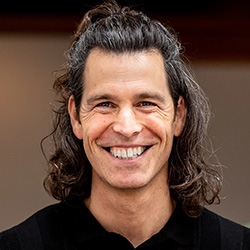

Search Results: work
-
We can create processes that encourage resources (particularly money) to flow to where they are most needed. Engaging in "money piles" is one new way that can refocus conversations on real, practical problems to solve -- rather than ideological or abstract discussions about who "earned", "deserved", worked "harder", or merits more. It can tilt conversations based on transaction and obligation towards care and relationship. Read on for three examples that further illustrate how this new way of operating may even bring us closer to the type of world we all want to live in.
-
Ask the Trainer: Share a list of request types, examples, and a strategy for formulating them.
-
Miki Kashtan shares how to build trust, balance power, and welcome honest “no’s” in dialogue.
-
Listen to the Universe is a fun group exercise to explore how we focus our attention and interpret what we experience.
-
Trainer Tip: Mary shares how staying present to our anger and finding the underlying feelings and needs can lead to deeper connection and more satisfying outcomes.
-
Understanding how our brains operate in relation to power, privilege and status is important if we wish to build a world that works for all. This article gives an overview of the brain tendencies we have in relationship to groups, and provides remedies to counteract the automatic labor-saving devices of our human brains (which often prevent us from seeing the fullness of others, and our own, humanity).
-
- Learn how to transform NVC into a tool for systemic awareness and healing
- Examine the influence of difference, and uncover pathways that strengthen its capacity
- Learn to receive and offer feedback on impact in situations fraught with power differences
- Explore specific ways in which NVC systemically supports the full flowering of humanity
- Delve into the dynamics of cultural differences, and discover how NVC can systemically contribute to a liberation perspective
-
Trainer Tip: Whether we listen to our own or the other person’s needs first, connecting to needs can help us release judgments of others, see their humanness, help us to begin to hear them and ultimately connect to them. Be aware today of times when you are judging someone. Then be aware of your own needs to improve your connection to them.
-
The heart of the practice of nonviolence is a commitment to live through the powerful combination of compassion, fierceness, and courage, with an uncompromising willingness to stand for truth. Join Miki Kashtan for this exciting and informative course to learn how to practically embrace nonviolence.
-
- Explore ways of parenting that will shape a future full of purpose and possibility
- Discover how your values can serve as a compass to guide you forward
- Understand the relationship between your present actions and desired outcomes
- Gain experience in balancing your child’s present needs with long term visions!
-
- Learn tips and strategies to ensure ALL voices are heard
- Grow your capacity to name and address power dynamics
- See how prior assumptions and perspectives impact how groups work together
- Explore facilitation components using a caring for all, power-with lens
-
Trainer Tip: We can voice our upset about a situation and still see the higher self in the other person. Honest expression can deepen connection and bring us closer to resolution and connection, when we're not judging them. To know that they're a spiritual being, but think they're an insensitive slob or egotistical bore, is a contradiction. Instead, look for the needs they want to meet. See the spiritual being in everyone—even yourself.
-
- Learn how to use empathy to dissolve conflict
- Deepen your NVC skills to help let go of judgments
- Explore approaches for asking for what you want
- Listen to the conflict within yourself
-
- Learn tips and strategies to ensure ALL voices are heard
- Grow your capacity to name and address power dynamics
- See how prior assumptions and perspectives impact how groups work together
- Explore facilitation components using a caring for all, power-with lens
-
Roxy Manning's 2023, 4 session course, will help you
- Explore several essential components of facilitation using a caring for all, power-with lens
- Know how to identify and gather together the people who need to be in the room
- Learn tips and strategies for ensuring all voices are heard
- Grow your capacity to name and address power dynamics and unconscious bias that impacts group members’ experience
-
Certified NVC Trainer Aya Caspi describes Nonviolent Communication (NVC) as a restorative practice—one that reconnects us with life, trust, and the experience of mattering. She reflects on Marshall Rosenberg’s vision of NVC as a “language of life,” helping us shift from disconnection to connection, from distrust to trust.
-
Trainer Tip: Sometimes when we look to fix someone's problems we think we're doing it to make them feel better, but in reality we are uncomfortable and we want to feel better. Instead of assuming you know what their problem is or what they need, listen deeply. Your listening presence can bring relief to the both of you and provide additional opportunities for healing. And along the way they may find their own way to a solution.
-
We can see throughout many examples in history that when we look for "who" is at fault, and thereby seek social change through shaming that person (or that group), it tends to lead to disastrous long term consequences. Even if it works in the short term. Instead, if we want to end cycles of violence we can seek to understand systemic causes and context of individuals' behaviour. And from there, look for solutions that stem from this understanding.
-
When we're judging we're less able to access both what we care about and constructive next actions. Instead, create more internal space and agency starting with connecting to your feelings and needs; then feel your grief or disappointment; followed by getting curious about the other party's needs and context -- and then based on collective needs and the long term effects make requests or take aligned action that works for all.
-

Quick Links
Subscription Preferences
Stay In Touch!
Looking for ways to keep up with NVC Academy news, get special offers, free resources, or words of inspiration? Here are five ways to stay engaged:
















